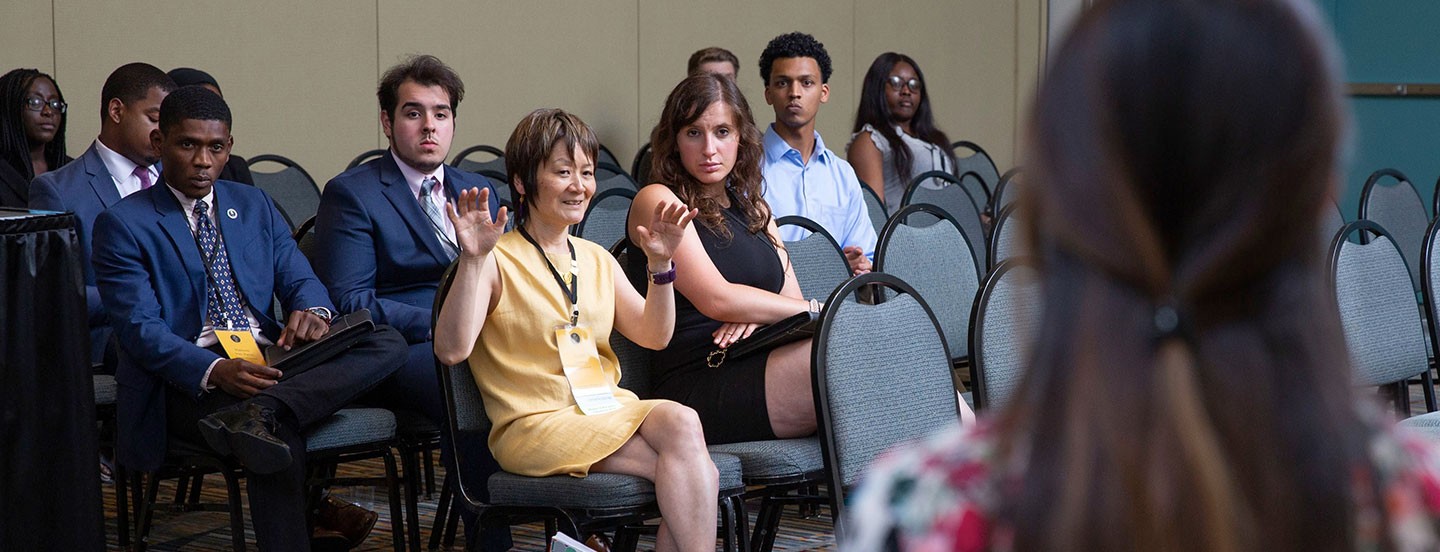
The Responsibilities of Mentoring
Previously: The Benefits of Mentoring
Your responsibilities as a mentor include but are not limited to:
Assessing your mentee (and helping them to self-assess) to identify the academic, professional, and even personal areas in which you can help your mentee grow. As a mentor, you possess a much broader view of the skills and qualities a student needs to enjoy a successful career as a researcher. It will be up to you to get to know your mentee so that you can guide them to experiences conducive to their growth.
Collaboratively developing a shared plan and set of expectations with your mentee. You and your mentee should both be on the same page regarding the work your mentee will be doing over the summer (and beyond, if applicable) and what to expect from each other. This shared plan and set of expectations is doubly important in a digital environment. As a mentor, take the initiative to be more explicit and flexible with your expectations. Your mentee will have fewer opportunities to get clarification and support when only able to interact with you, graduate student study group leaders, and their peers via videoconferencing, email, or any other platforms you utilize. Similarly, each mentee will have a unique set of challenges and constraints based on their access to necessary technologies and how conducive their home environment is to conducting complicated research in a sustained way.
Cultivating an environment for growth. Students who feel well integrated into the research process and the community of scholars around them are more likely to persist in their majors and go on to graduate school. (Gloria & Robinson-Kurpius, 2001; Tinto, 1993) As a research mentor, you are uniquely positioned to make that happen. (McGee, 2016, p. 6) Ensure that your mentee becomes a part of your team, feels free to ask questions, and is not subject to micro-aggressions, which are defined as “brief, everyday exchanges that send denigrating messages to certain individuals because of their group membership,” (Sue, 2010) stereotype threat, which is defined as “being at risk of confirming, as a self-characteristic, a negative stereotype about one’s group,” (Steele & Aronson, 1995, p. 797) or implicit bias, which refers to the phenomenon of a negative or positive unconscious belief about members of different groups, when working with you or your research team.
Nurturing through regular feedback. The frequency with which mentees get feedback from their mentors is closely related to mentee productivity. (Allen, Shockley, & Poteat, 2010) Make a plan to meet with your mentee on a regular basis or be sure that your mentee will have regular meetings with someone on your research team. Regular meetings will help your mentee stay on track regarding their work and the skill-acquisition process. Frequent feedback will keep you and your mentee accountable to each other. In a digital environment, be sure to err on the side of scheduling more, rather than fewer check-ins with your mentees. For example, it may make sense to split your hour-long meetings into two half-hour-long check-ins.
Challenging and supporting your mentees. Dr. Laurent Daloz emphasizes that mentee growth depends on mentors both challenging and supporting their mentees. Effective mentors challenge their mentees by giving them difficult and even perplexing tasks, introducing new concepts, and setting ambitious expectations. Effective mentors also support their mentees by helping them develop creative solutions to problems, expressing empathy, showing confidence in their abilities, and serving as an example that the journey to becoming a researcher is possible despite universal difficulties. (Daloz, 2012, pp. 205–208). Regular check-ins will help you make sure your mentee’s project is a good fit, with appropriate challenges, and that they are getting the support they need to grow.
Action Items
- Develop a feedback plan for your mentee that will explain when, how, and along which dimensions you will provide feedback. Plan on sharing this information with your mentee. If your mentee is experiencing anxiety with respect to working with you, this information will help reduce that anxiety and help you both get the most out of working together.
- In a similar vein, develop a communication plan that covers when you will have planned touch-points as well as the media for them (Zoom/Slack/Google Hangouts, etc.)
- Get up to speed on best practices regarding implicit bias, stereotype threat, and microaggressions. Students who feel assured that “their abilities and belonging are assumed rather than doubted” invest more in and grow more from the tasks and assignments their mentors give to them. (Sue, 2010) Microaggressions, even when inadvertent, lead to students feeling marginalized and stereotyped while simultaneously undercutting your position as someone who your mentees can trust to be a fair and caring mentor. To interactively learn more about common microaggressions in academia, go to www.fairplaygame.org. (Pribbenow & Kile, 2015) To read more about the effects of stereotype threat in the context of cross-race mentoring, see “A Barrier of Mistrust: How Negative Stereotypes Affect Cross-Race Mentoring” by Geoffrey L. Cohen and Claude M. Steel. (2002)
Up next: The Requirements of Mentoring